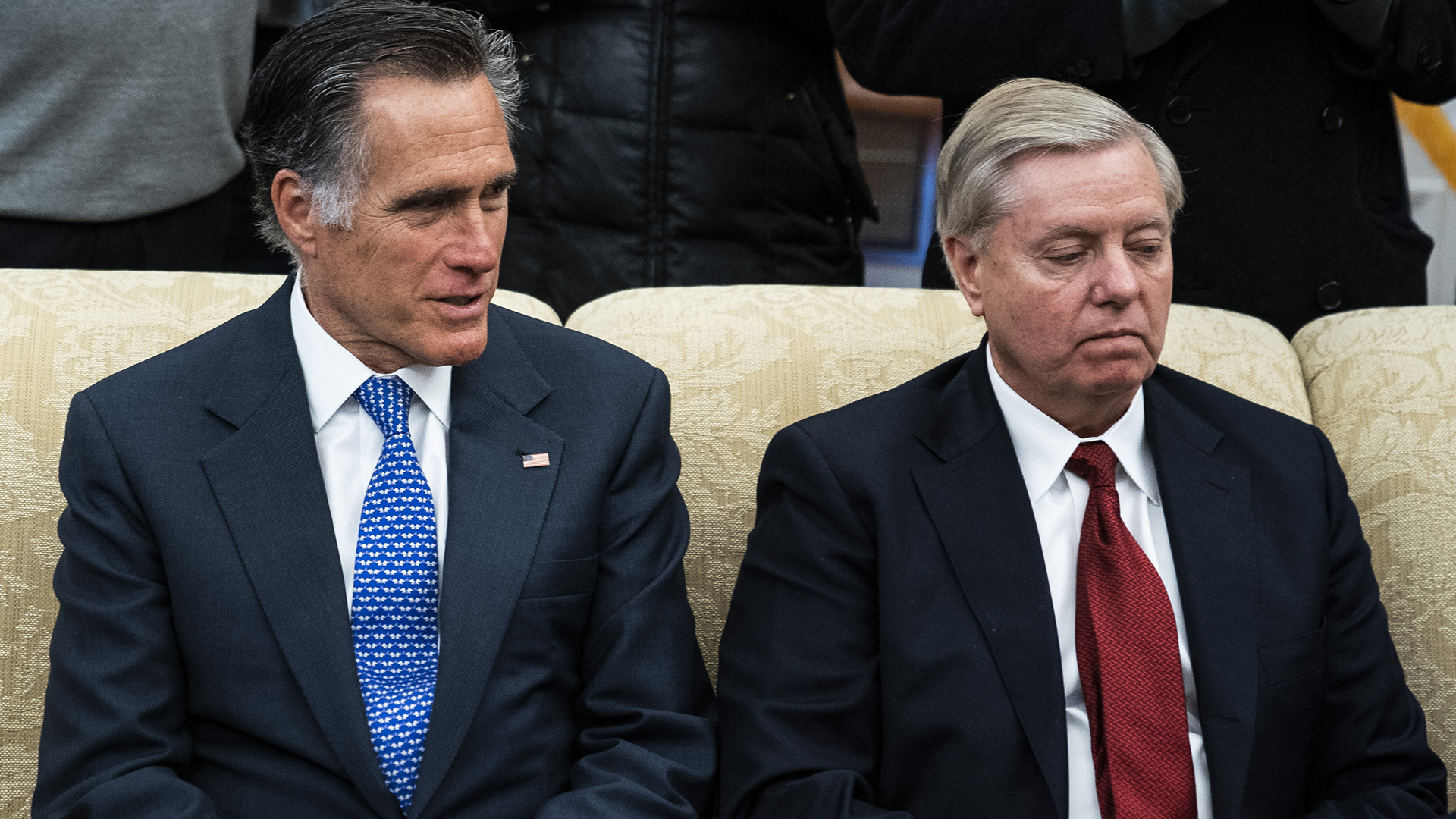OPINION: This article may contain commentary which reflects the author's opinion.
The Senate has denied an amendment that would have blocked funding for President Joe Biden’s vaccine mandate and it happened after several Republicans missed the key vote.
The vote happened on February 18, in the amendment offered by Republican Sen. Mike Lee, and only missed by one vote in a vote of 47 – 46, The Epoch Times reported.
Lee and fellow Republicans were optimistic because they hold a slight majority in the upper chamber since Sen. Ben Ray Lujan (D-N.M.) suffered a stroke. Additionally, Sens. Dianne Feinstein (D-Calif.) and Mark Kelly (D-Ariz.) were absent with reported family emergencies.
But four Republican senators missed the vote, dooming the measure.
Sens. Richard Burr (R-N.C.), Lindsey Graham (R-S.C.), Jim Inhofe (R-Okla.), and Mitt Romney (R-Utah) were not present when the Senate voted on Lee’s amendment and two other proposals to alter the funding bill.
Romney and Inhofe voted to advance the bill but did not vote for the rest of the day. Graham and Burr missed all the votes on Thursday.
“NO REPUBLICAN SENATOR should leave town this afternoon. Schumer is panicking right now because Dems WILL LOSE THE VOTE on my amendment & @SenMikeLee amendment to BLOCK BIDEN’s VACCINE MANDATES & BLOCK MANDATES ON KIDS. The only way Dems win the vote is if Rs skip town. Don’t!” Texas Sen. Ted Cruz said on Twitter.
NO REPUBLICAN SENATOR should leave town this afternoon.
Schumer is panicking right now because Dems WILL LOSE THE VOTE on my amendment & @SenMikeLee amendment to BLOCK BIDEN’s VACCINE MANDATES & BLOCK MANDATES ON KIDS.
The only way Dems win the vote is if Rs skip town.
Don’t!
— Ted Cruz (@tedcruz) February 17, 2022
.@SenateGOP has a very real chance of defunding @POTUS’s remaining vaccine mandates IF every Republican stays for the vote, Sen. Mike Lee said.
.@SenateGOP has a very real chance of defunding @POTUS’s remaining vaccine mandates IF every Republican stays for the vote.
— Mike Lee (@SenMikeLee) February 17, 2022
But the Biden mandates have had a tough time in court.
A federal appeals court on Wednesday said it would not reinstate the mandate, which kept in place a lower court ruling, CNN reported.
The 5th US Circuit Court of Appeals did not explain its reasoning in the unsigned order that said the court was expediting its review of the case. The court said the Biden administration’s request to put the lower court’s ruling on hold was being “carried with the case,” signaling that the appeals court would not rule on the request until it had conducted a fuller review of the case.
The mandate, which applied to some 3.5 million federal workers, required full vaccination by the end of November, although the administration said it would first counsel employees who resisted vaccination rather than discipline or fire them. On December 9, the Office of Management and Budget said the federal workforce was 97.2% compliant with the mandate — a figure that included people who had pending or approved exemptions.
Last month, a federal judge in Texas blocked the administration from enforcing the requirement, calling the mandate an overstep of presidential authority and citing a Supreme Court decision to strike down a separate administration mandate that had applied to private-sector workers.
There was one dissent on the appeals court panel, by US Circuit Judge Stephen Higginson, who was appointed by former President Obama.
“[T]he public interest is not served by a single Article III district judge, lacking public health expertise and made unaccountable through life tenure, telling the President of the United States, in his capacity as CEO of the federal workforce, that he cannot take the same lifesaving workplace safety measures as these private sector CEOs,” he said.
“The only court that can now provide timely relief is the Supreme Court,” he said.
And that is likely where the case is headed after a judge, appointed by former President Donald Trump, blocked the mandate last month, Reuters reported.
Biden had issued an order requiring about 3.5 million government workers to get vaccinated by Nov. 22 barring a religious or medical accommodation — or else face discipline or firing.
U.S. District Judge Jeffrey Brown said the question was whether Biden could “require millions of federal employees to undergo a medical procedure as a condition of their employment. That, under the current state of the law as just recently expressed by the Supreme Court, is a bridge too far.”
Brown, based in Galveston and appointed by then-President Donald Trump, said the government could protect public health with less invasive measures, such as masking and social distancing.
